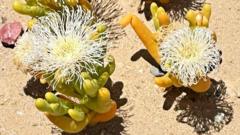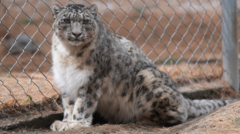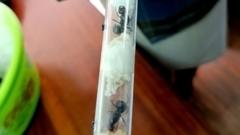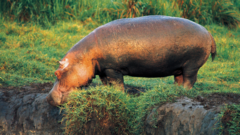South Africa's rich diversity of wild succulents is under threat as organized crime groups exploit global demand, leading to a surge in illegal poaching. This alarming trend results in ecological damage and social ramifications for local communities, prompting calls for awareness and sustainable practices.
Rise of Illegal Succulent Trade Threatens South Africa's Biodiversity

Rise of Illegal Succulent Trade Threatens South Africa's Biodiversity
Poachers target unique plant species in South Africa's Namaqualand region, endangering local ecosystems and communities.
In the remote biodiversity hotspot of South Africa, the illegal trade of unique succulent plants is flourishing, driven by international demand and aided by organized crime syndicates. This urgent crisis has sparked outrage among local farmers who say it threatens both their livelihoods and their cultural heritage.
Succulents, characterized by their ability to store water, flourish in arid regions like the Succulent Karoo desert, which spans South Africa and Namibia. The diverse assortment of shapes and colors found among these plants has captivated collectors worldwide. However, as online marketplaces become hotspots for illegal sales, poachers are ravaging the local flora.
Kamieskroon in Namaqualand has emerged as a focal point for these activities, with criminal syndicates employing locals to gather succulents for lucrative deals. "We've lost seven species completely, and the list is growing," states Pieter van Wyk, a nursery curator. From 2019 to 2024, law enforcement has confiscated approximately 1.6 million succulents, a figure likely far below the actual scale of poaching.
The COVID-19 pandemic exacerbated the situation, as international traders turned to locals for plant procurement while travel restrictions were in place. With more people trapped indoors, interest in houseplants surged, heightening the allure of these "super-strange looking" species. As the demand ballooned, organized crime networks seized the opportunity to market these plants on social media, further fueling the illegal trade.
The repercussions extend beyond the loss of biodiversity; local communities also suffer from the socio-economic impact of poaching. Malinda Gardiner from Conservation South Africa emphasizes the challenges posed by this low-income area, where poaching provides a financial lifeline for many. However, it also leads to increased substance abuse and the breakdown of community bonds.
Awareness initiatives are underway to educate potential buyers about the importance of understanding a plant's origin. In a positive development, a campaign in China has seen an 80% drop in illicit online advertisements for a specific succulent species, highlighting the power of consumer education.
Conservationists urge buyers globally to avoid purchasing wild succulents and promote legal cultivation practices instead. Collaborations between organizations such as Traffic and Kew Gardens aim to curb the online sale of these endangered plants.
As Mr. Van Wyk cares for over 200,000 confiscated plants in his nursery at the /Ai /Ais-Richtersveld Transfrontier Park, he reflects on the challenges, but also the joy of working with these remarkable species. "If you study these plants, it brings so much joy and pleasure," he says, expressing hope for a future where awareness leads to responsible consumption and conservation.



















